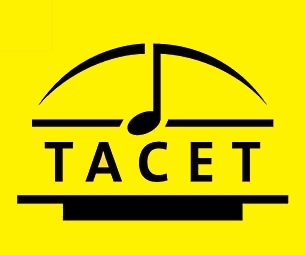"The Auryn Quartet’s second installment in their complete Beethoven cycle for Tacet is just as tremendous as the first, which comprised the Op. 18 set. Once again, the Auryns and Tacet have demonstrated a near ideal partnership between music and technique in which it is absolutely impossible to imagine one without the other.
Using two Neumann M49 microphones and working in the Cologne studios of DeutschlandRadio, Andreas Spreer has captured the Auryn performances in a space which, without being dry or claustrophobic, sounds like one of those science fiction continuums where space stretches to fit time. The sound is fine and detailed, the lower strings of the viola and cello have a wonderful grainy quality to them. It’s probably close to what composers hear in their heads when they compose, before they’ve heard the music live for the first time.
The Auryn Quartet, which has done a marvelous Schubert cycle for CPO, is not particularly predictable. They are relatively reserved rhetorically, and tend towards moderate to fast-ish speeds (although they can turn it on, as in the upward whoosh at the end of Op. 59 No. 3). What sets them apart is a sense of latent power that creates a superb kind of musical tension. Thomas Seedorf’s liner notes are very good. If you’re wondering, The Quartet took its name from “the amulet that bestows intuition upon its bearer in Michael Ende’s The Neverending Story. There are other very good Beethoven cycles to be had (and sometimes, it must be admitted, the one you’ve listened to most recently sounds the best), and more on the horizon (including a novel cycle planned by the Miró Quartet who will record the quartets as they reach the age Beethoven was when he wrote them). In the meantime, it looks like the rest of the cycle will be released in the near future. Snap it up if you can!"
Laurence Vittes
<< back
The Auryn Quartet, which has done a marvelous Schubert cycle for CPO, is not particularly predictable. They are relatively reserved rhetorically, and tend towards moderate to fast-ish speeds (although they can turn it on, as in the upward whoosh at the end of Op. 59 No. 3). What sets them apart is a sense of latent power that creates a superb kind of musical tension. Thomas Seedorf’s liner notes are very good. If you’re wondering, The Quartet took its name from “the amulet that bestows intuition upon its bearer in Michael Ende’s The Neverending Story. There are other very good Beethoven cycles to be had (and sometimes, it must be admitted, the one you’ve listened to most recently sounds the best), and more on the horizon (including a novel cycle planned by the Miró Quartet who will record the quartets as they reach the age Beethoven was when he wrote them). In the meantime, it looks like the rest of the cycle will be released in the near future. Snap it up if you can!"
Laurence Vittes
<< back
